The Role of Propaganda in Historical Conflicts
31 December 2024
War has always been more than just bullets and bombs. Behind every major conflict lies an equally significant battle for hearts and minds. This is where propaganda comes in. You’ve probably heard the term thrown around in media or history classes, but have you ever stopped to think about its real impact? How did it shape the course of wars and influence entire populations? In this article, we’re going to dive deep into the role of propaganda in historical conflicts, exploring how it’s been used as a tool of manipulation, persuasion, and control throughout history.
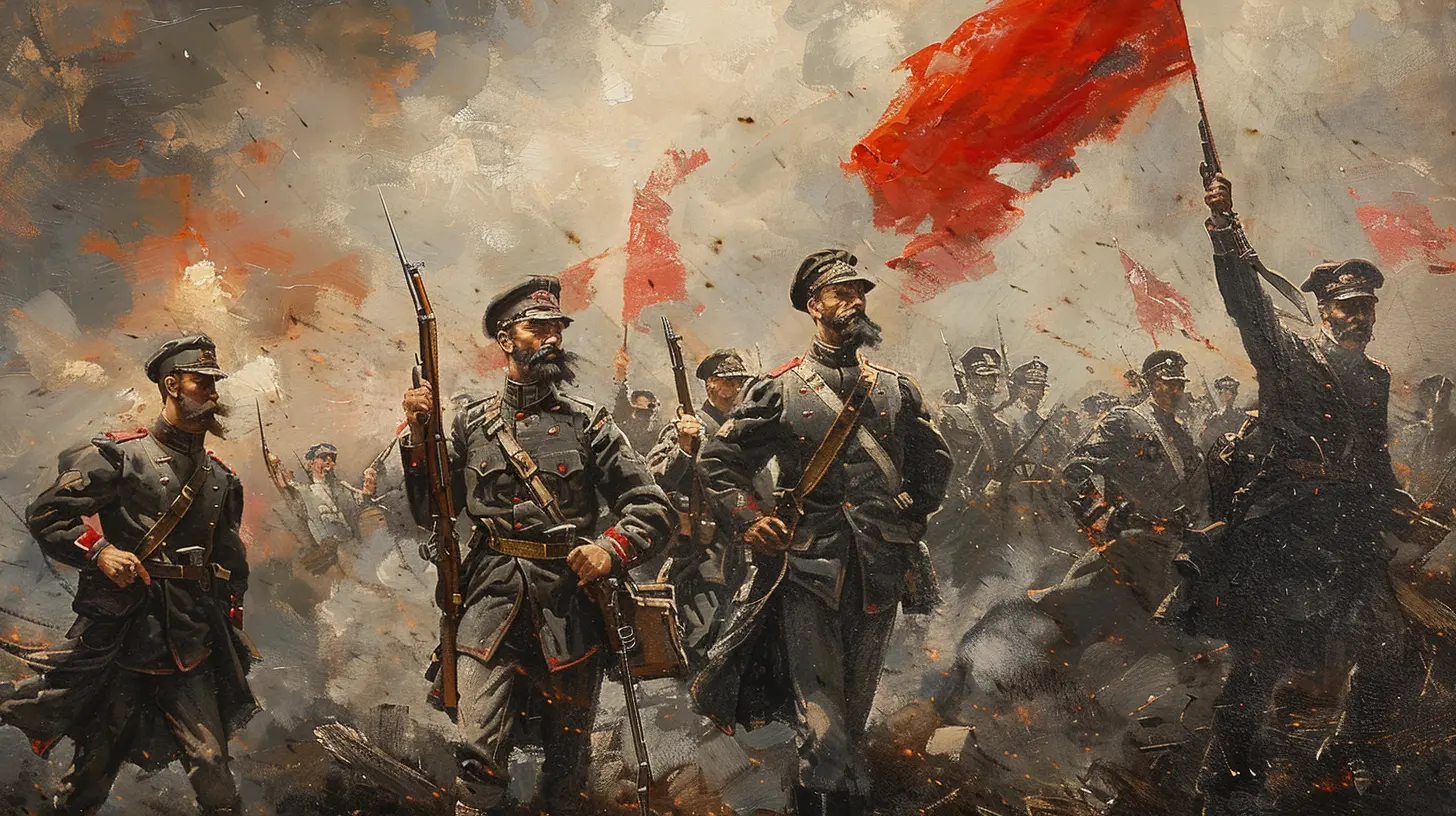
What is Propaganda Anyway?
Before we get into the nitty-gritty, let’s clarify what we mean by propaganda. In simple terms, propaganda is a form of communication used to influence the attitudes or behaviors of a population towards a particular cause, position, or ideology. Sounds innocent enough, right? Except, historically, it’s been anything but.Propaganda is not always based on facts. It often aims to manipulate emotions, twist the truth, or present outright lies to achieve its goals. Governments, political leaders, and even religious groups have used it as a weapon to shape public opinion, build support, or demonize enemies. Whether you’re rallying a nation for war or justifying an invasion, propaganda has always played a central role.
The Power of Persuasion
Think about it. In times of war, the stakes are high. Leaders need to keep morale up, convince the public that their cause is just, and ensure that soldiers are willing to fight. Propaganda is their secret weapon. From posters and speeches to radio broadcasts and movies, every form of media has been used to spread propaganda.But propaganda isn’t just about convincing people to support a cause. It's also about dehumanizing the enemy, creating an "us versus them" mentality. By portraying the enemy as evil, barbaric, or less than human, it becomes much easier to justify acts of violence or aggression.
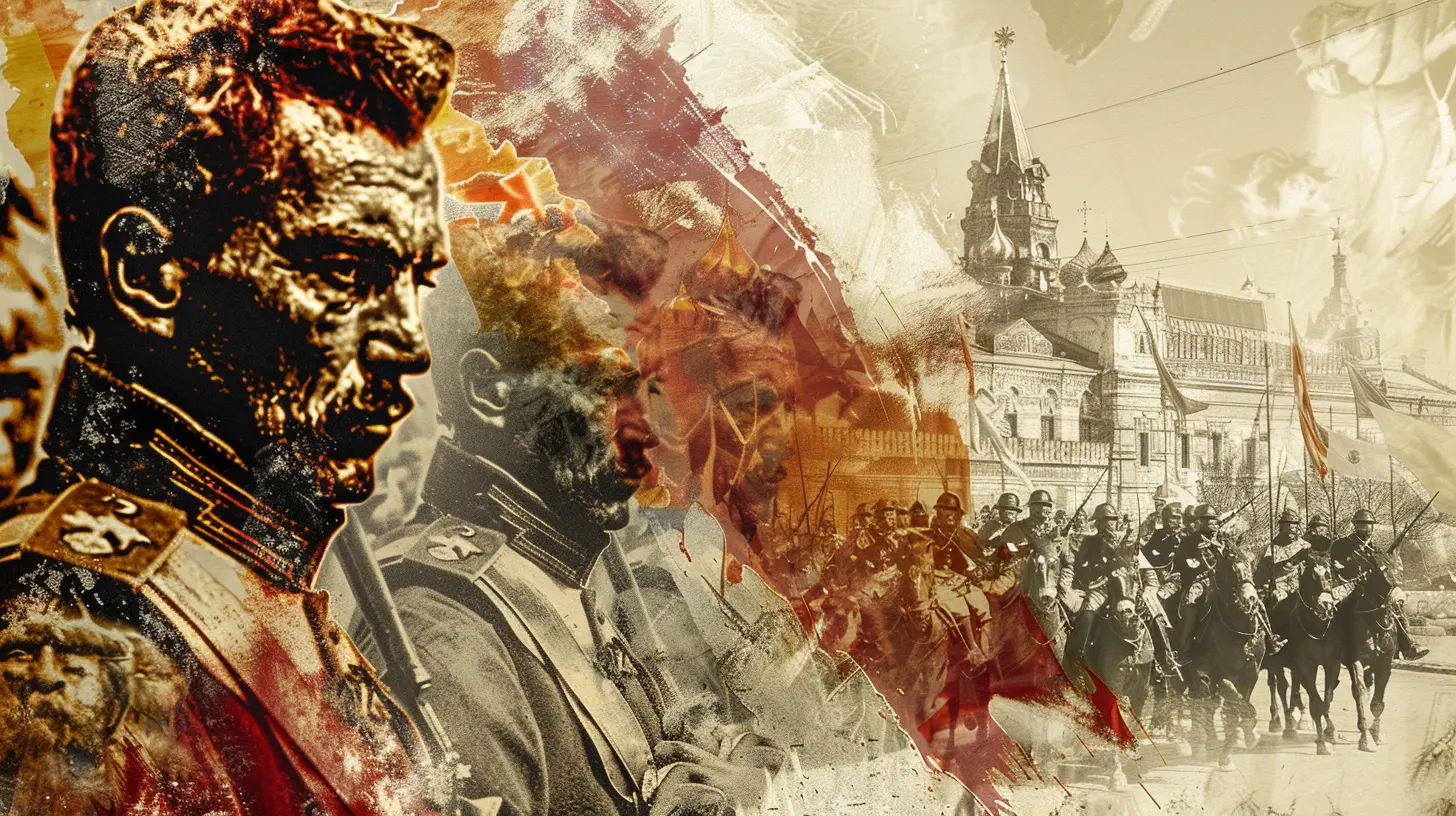
Propaganda in World War I: Setting the Stage
When we talk about propaganda in historical conflicts, we can’t skip over World War I. This was one of the first wars where propaganda was used on a massive scale. Governments realized that controlling the narrative was just as important as controlling the battlefield.During World War I, propaganda was everywhere. Governments used posters to encourage men to enlist, women to work in factories, and families to buy war bonds. Take a look at the famous British recruitment poster with Lord Kitchener pointing a finger and saying, "Your Country Needs YOU!" It’s a classic example of propaganda that plays on guilt and duty.
But it wasn’t just about recruitment. Governments also worked hard to demonize the enemy. The British and French portrayed the Germans as savage "Huns" who killed women and children. Stories of atrocities, some fabricated or exaggerated, were spread to fuel hatred. On the flip side, the Germans had their own propaganda, depicting the Allies as aggressive invaders.
The Role of Media
It wasn’t just posters and pamphlets. Newspapers played a massive role in spreading propaganda. Governments often censored the press or fed them biased information to ensure that only positive stories about their side were told. The goal? To keep the public supportive of the war effort.Radio, although still in its infancy, was used to broadcast speeches by political leaders. The power of hearing a leader’s voice directly appealed to emotions in a way that written words sometimes couldn’t. It’s no surprise that radio would later become a critical tool in future conflicts.
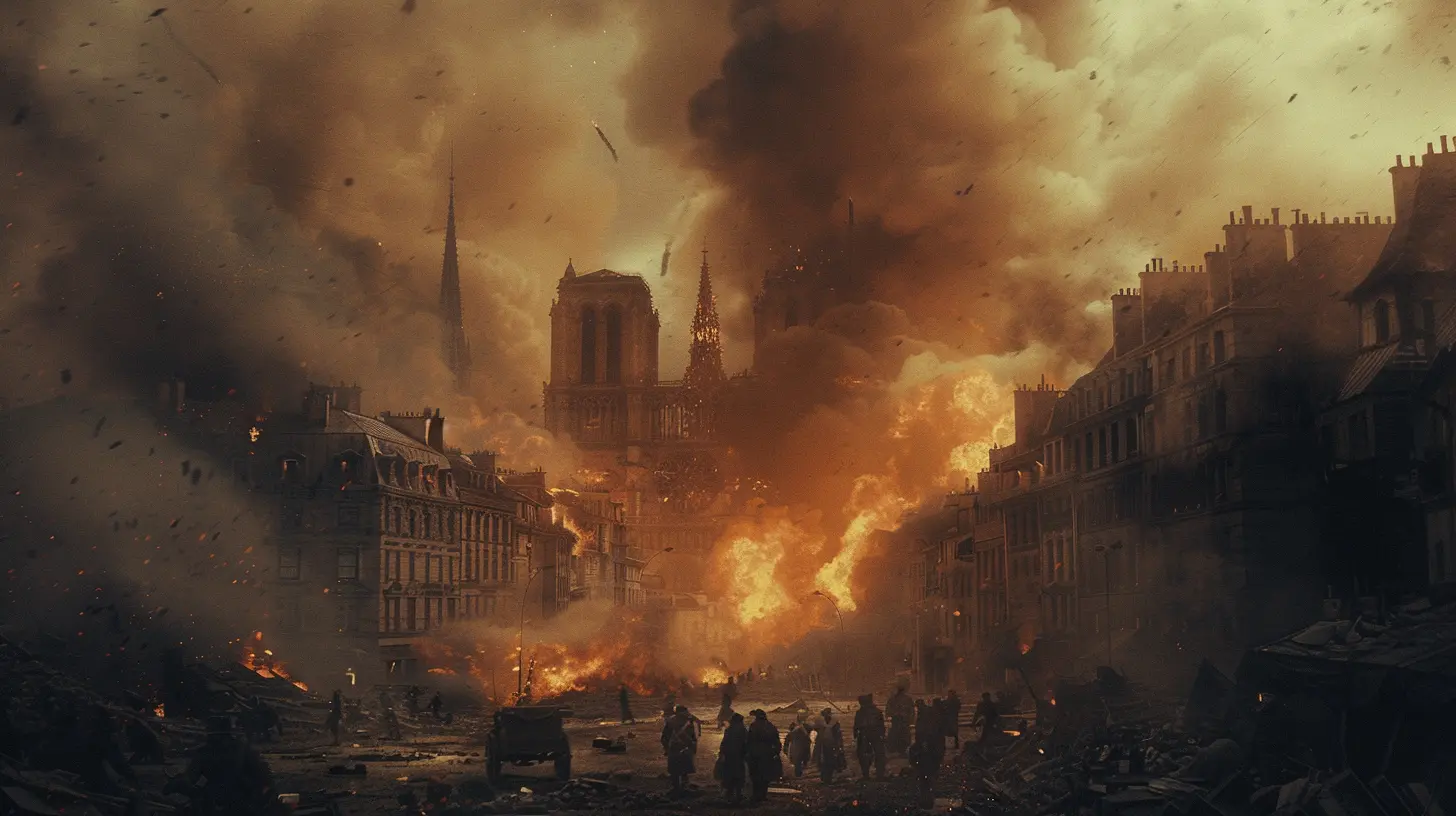
World War II: The Golden Age of Propaganda
If World War I set the stage, World War II took propaganda to a whole new level. This was the era of mass media. Radios were in almost every home, and movies had become a dominant form of entertainment. Both the Allies and the Axis powers understood the importance of winning the war not just on the battlefield but in the hearts of their people.Nazi Propaganda: A Masterclass in Manipulation
Let’s talk about the Nazis for a second. They were, without a doubt, experts in propaganda. Under the direction of Joseph Goebbels, Hitler's Minister of Propaganda, the Nazi regime used every tool at their disposal to spread their twisted ideology. Films, posters, and even children's books were filled with anti-Semitic and pro-Aryan messages.Movies like Triumph of the Will glorified the Nazi Party and portrayed Hitler as a god-like figure. The Nazis understood the power of imagery and emotion, using them to rally support for their regime and justify their crimes, including the horrors of the Holocaust.
But Nazi propaganda didn’t stop at home. They used radio broadcasts to reach foreign audiences, spreading disinformation and trying to demoralize the enemy. By controlling the narrative, the Nazis hoped to weaken their opponents both mentally and emotionally.
Allied Propaganda: Fighting Fire with Fire
The Allies weren’t innocent bystanders in the propaganda war either. Britain, the U.S., and the Soviet Union all had extensive propaganda campaigns aimed at boosting morale and demonizing the Axis powers. Think of Rosie the Riveter, the iconic image of a strong woman flexing her muscles. She wasn’t just a symbol of female empowerment; she was also part of a larger effort to encourage women to join the workforce and support the war effort.In the U.S., films like Why We Fight were produced to explain to soldiers and the public why America was involved in the war. These films were designed to make the complex political situation easy to understand and to frame the war as a battle between good and evil.
The Role of Cartoons
Would you believe cartoons were a part of the propaganda machine? Yep, even beloved characters like Bugs Bunny and Donald Duck were drafted into the war effort. Animated shorts produced by Disney and Warner Bros. often showed these characters fighting Nazis or Japanese soldiers, making the enemy seem less human and easier to hate. It was propaganda disguised as entertainment.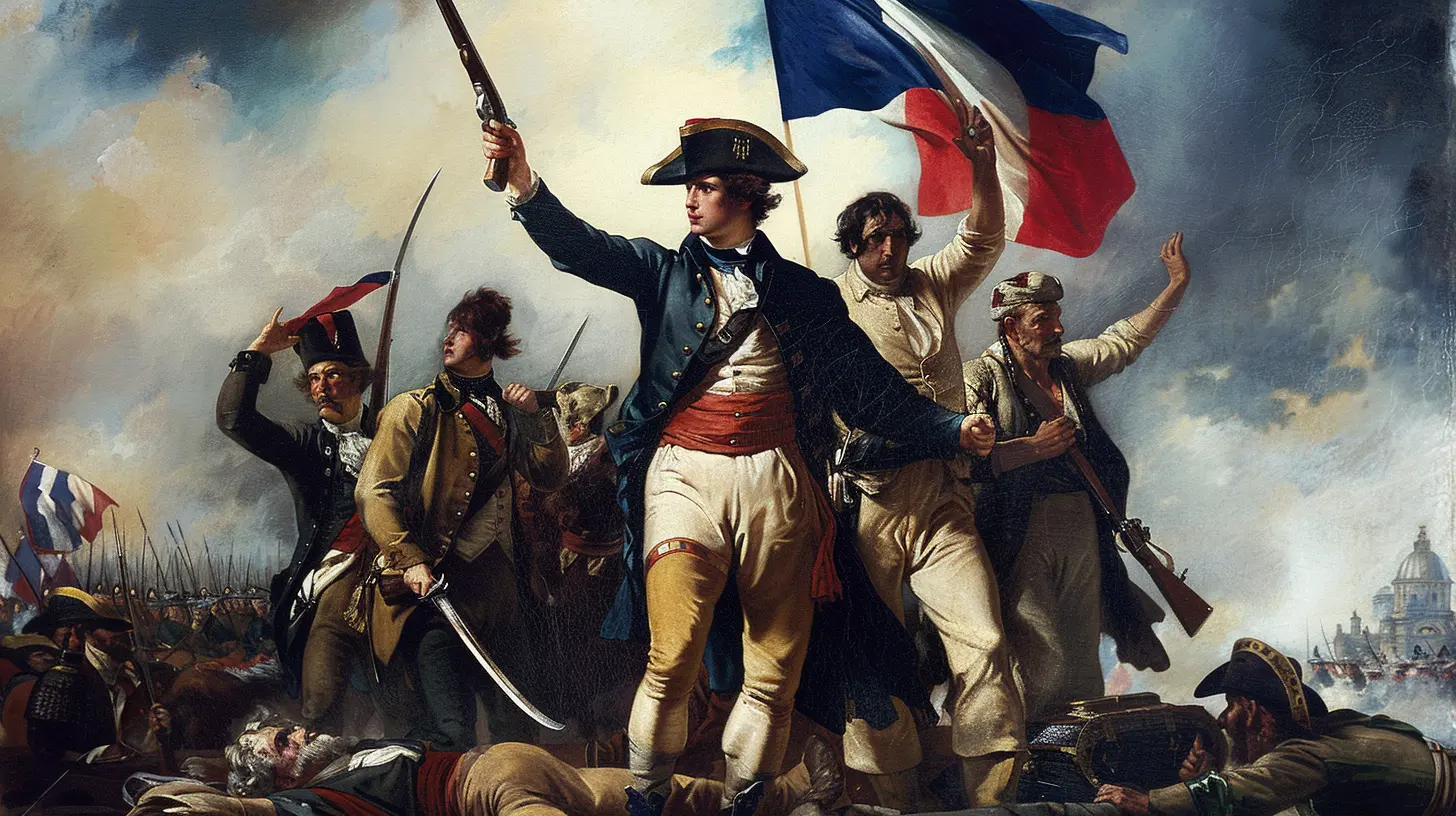
The Cold War: A Battle of Ideologies
After World War II, the world found itself in a new kind of conflict—the Cold War. This wasn’t a traditional war with battles and invasions (most of the time). Instead, it was a battle of ideologies between the capitalist West, led by the United States, and the communist East, led by the Soviet Union. And once again, propaganda was at the center of the conflict.The Red Scare and McCarthyism
In the U.S., the government used propaganda to fuel fear of communism. During the Red Scare of the 1950s, Americans were bombarded with messages about the dangers of communist infiltration. Films, TV shows, and news reports warned that communists were lurking around every corner, ready to destroy the American way of life. Senator Joseph McCarthy became infamous for his witch hunts, accusing countless people of being communists without any real evidence.The fear was so intense that even Hollywood jumped on board, producing films like Invasion of the Body Snatchers, which used science fiction to symbolize the perceived threat of communism.
Soviet Propaganda: The Battle for Hearts and Minds
On the other side, the Soviet Union was no stranger to propaganda. They portrayed the West as greedy capitalists who oppressed the working class. Soviet films, posters, and literature glorified the achievements of communism and painted the U.S. as an imperialist nation bent on world domination.The Soviets also used propaganda to maintain control within their own borders. The state-controlled media ensured that only positive stories about communism and the Soviet government were published, while any dissenting voices were silenced.
Propaganda in Modern Conflicts
You might think that propaganda is a relic of the past, but it’s very much alive today. In fact, with the rise of social media, propaganda has become even more sophisticated.The War on Terror
In the aftermath of 9/11, the U.S. government used propaganda to justify the War on Terror. Images of burning skyscrapers and stories of terrorist plots were used to rally support for military action in Afghanistan and Iraq. The phrase "weapons of mass destruction" became a powerful piece of propaganda, even though no such weapons were ever found in Iraq.On the flip side, extremist groups like ISIS have used social media to spread their own propaganda. They’ve produced slickly edited videos to attract recruits and spread their message of hate.
The Role of Social Media
Social media has changed the game. Today, anyone with a smartphone can create and spread propaganda. Fake news, disinformation, and conspiracy theories can go viral in a matter of hours, influencing public opinion in ways that were unimaginable just a few decades ago.We saw this during the 2016 U.S. presidential election, where foreign actors used social media platforms like Facebook and Twitter to spread disinformation and sow division. It’s a reminder that propaganda isn’t just a tool of the past—it’s a weapon that’s constantly evolving.
Conclusion: A Tool of War and Control
So, what’s the takeaway here? Propaganda has been a powerful tool in shaping the outcomes of historical conflicts, from World War I to the present day. It’s been used to rally support, demonize enemies, and control the narrative. Whether through posters, films, or social media, propaganda has always found a way to tap into our emotions and shape our beliefs.As we move forward, it’s crucial to stay aware of the power of propaganda, especially in the digital age. The next time you see a news story or a social media post, ask yourself: *Is this fact, or is it propaganda?
all images in this post were generated using AI tools
Category:
History LessonsAuthor:

Olivia Chapman
Discussion
rate this article
17 comments
Karen Campbell
Understanding propaganda's impact on historical conflicts empowers us to critically analyze information today. Knowledge is our strongest ally in promoting peace and informed decision-making!
February 4, 2025 at 3:40 AM

Olivia Chapman
Absolutely! Understanding the role of propaganda helps us discern biases in today's information landscape, fostering critical thinking and informed choices for a more peaceful future. Thank you for your insightful comment!
Soraya McEvoy
Propaganda shapes perceptions and influences behaviors during conflicts, often distorting truths to unify or divide. Understanding its role helps us critically assess historical narratives and recognize its ongoing impact in contemporary issues.
January 31, 2025 at 12:44 PM

Olivia Chapman
Thank you for your insightful comment! You’ve captured the essence of propaganda’s powerful influence on perceptions and behaviors, highlighting its critical role in both historical and contemporary contexts.
Nellie Wolf
Insightful analysis on how propaganda shapes perceptions during historical conflicts.
January 27, 2025 at 12:27 PM

Olivia Chapman
Thank you! I'm glad you found the analysis insightful. Propaganda's influence on perceptions is crucial in understanding historical conflicts.
Ulrich Kearns
This article effectively highlights how propaganda shapes public perception and influences outcomes in historical conflicts, demonstrating its pivotal role in warfare and societal dynamics.
January 23, 2025 at 8:42 PM

Olivia Chapman
Thank you for your insightful comment! I'm glad the article resonated with you and shed light on the impact of propaganda in shaping historical narratives.
Tilly McKee
Understanding the power of propaganda in historical conflicts is essential. It shapes narratives, influences perceptions, and drives actions. By analyzing its impact, we can foster critical thinking, empower informed citizens, and ultimately promote a more peaceful and enlightened future.
January 20, 2025 at 12:30 PM

Olivia Chapman
Thank you for highlighting the critical role of propaganda. Your insights on its influence on narratives and perceptions emphasize the need for critical analysis to foster informed citizenship and promote peace.
Delia Frank
This article effectively highlights how propaganda shapes perceptions and influences public opinion during historical conflicts, offering valuable insights into its enduring impact on society and modern communication strategies.
January 15, 2025 at 1:31 PM

Olivia Chapman
Thank you for your insightful comment! I'm glad you found the article valuable in understanding the lasting effects of propaganda on public perception and communication.
Renata Robinson
Thank you for this insightful article! It beautifully highlights the profound impact of propaganda on historical conflicts. Understanding this aspect enriches our perspective on history and its lasting effects.
January 8, 2025 at 11:56 AM

Olivia Chapman
Thank you for your thoughtful feedback! I’m glad you found the article enlightening and appreciate your recognition of the importance of propaganda in shaping history.
Courtney McLaurin
This article sparks my curiosity about how propaganda not only shaped public perception during historical conflicts but also influenced the course of events. What specific examples illustrate these dynamics effectively?
January 4, 2025 at 1:01 PM

Olivia Chapman
Thank you for your interest! Notable examples include World War I's British propaganda campaigns that demonized the enemy, influencing public sentiment and enlistment, and Nazi Germany's use of film and media to rally support for the regime, which significantly impacted both domestic and international perceptions leading up to World War II.
Alessia McKale
Insightful perspective, thank you!
January 4, 2025 at 5:42 AM

Olivia Chapman
Thank you for your kind words! I'm glad you found it insightful.
Faenor Morgan
Powerful insights on propaganda's lasting impact.
January 3, 2025 at 3:30 AM

Olivia Chapman
Thank you! I'm glad you found the insights valuable. Propaganda truly shapes perceptions and narratives in profound ways throughout history.
Esme Maddox
This article brilliantly highlights how propaganda shapes narratives in historical conflicts. It’s fascinating to see how information can be both a weapon and a tool for understanding. A must-read for anyone interested in history’s lessons and the power of communication!
January 2, 2025 at 2:06 PM

Olivia Chapman
Thank you for your insightful comment! I'm glad you found the article engaging and thought-provoking.
Savannah Porter
Great insights on a crucial topic!
January 2, 2025 at 5:11 AM

Olivia Chapman
Thank you! I'm glad you found the insights valuable.
Lucas McGlynn
Thank you for this insightful article! It's fascinating to see how propaganda has shaped perceptions and narratives throughout history. Understanding its role in conflicts is crucial for recognizing its impact on contemporary issues. Great read!
January 1, 2025 at 9:41 PM

Olivia Chapman
Thank you for your kind words! I'm glad you found the article engaging and relevant to today's issues. Your insights on the importance of understanding propaganda are spot on!
Uma Fry
Ah, propaganda—the confetti of historical conflicts! Sprinkling a dash of truth with a hearty dose of exaggeration, it dances its way through time, shaping perspectives like a flamboyant pinwheel in a windstorm!
January 1, 2025 at 1:02 PM

Olivia Chapman
Thank you for your vivid metaphor! Indeed, propaganda often transforms narratives, blending truth and exaggeration to influence perceptions throughout history.
Jillian McGee
This article astutely highlights how propaganda shapes perceptions and actions during historical conflicts. Understanding its role is crucial for analyzing past events and preventing misinformation in contemporary society. Great insights!
December 31, 2024 at 8:23 PM

Olivia Chapman
Thank you for your thoughtful comment! I'm glad you found the insights on propaganda's impact valuable for understanding both history and contemporary issues.
Zeke Bellamy
Propaganda is not just a tool; it's a weapon that shapes narratives and influences entire societies. In historical conflicts, it's often the invisible hand steering public opinion, justifying atrocities, and rallying nations. Understanding its power is crucial for grasping the true dynamics of war and peace.
December 31, 2024 at 12:57 PM

Olivia Chapman
Thank you for your insightful comment! Indeed, propaganda is a potent force that plays a critical role in shaping public perception and influencing the course of history during conflicts. Understanding its mechanisms is essential for comprehending the broader impact on society and diplomacy.
Linnea Weber
This article provides insightful perspectives on how propaganda shaped historical conflicts. It effectively highlights the complex interplay between information, perception, and power, underscoring the importance of critically examining narratives in our understanding of history.
December 31, 2024 at 3:42 AM

Olivia Chapman
Thank you for your thoughtful comment! I'm glad you found the article insightful and appreciate your recognition of the importance of examining narratives in history.
MORE POSTS

The Role of Technology in Shaping Historical Events

The Role of Self-Discipline in Academic Achievement

Art in Motion: Introducing Animation to Young Creatives
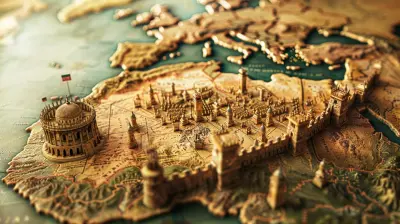
The Role of Religion in Shaping Empires

Using Technology to Enhance Student Motivation and Learning

How to Use Technology to Enhance Your Study Sessions

How to Use Visual Aids to Enhance Your Message

Understanding Gender Differences in Communication Styles

How to Prepare for a Differentiated Classroom: A Teacher’s Guide

How to Create Effective Learning Stations in Your Classroom

How Technology is Facilitating Peer Feedback in Education